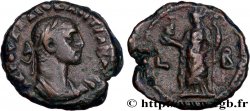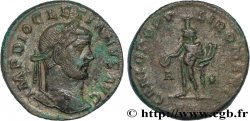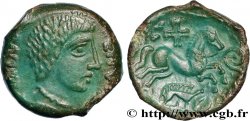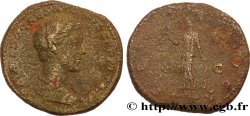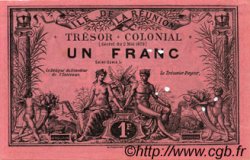E-auction 253-176583 - brm_173857 - DIOCLETIAN Aurelianus
You must signin and be an approved bidder to bid, LOGIN TO BID. Accounts are subject to approval and the approval process takes place within 48 hours. Do not wait until the day a sale closes to register. Clicking on « bid » constitutes acceptance of the terms of use of cgb.fr private e-auctions.
Bids must be placed in whole Euro amounts only. The sale will start closing at the time stated on the item description; any bids received at the site after the closing time will not be executed. Transmission times may vary and bids could be rejected if you wait until the last second. For further information ckeck the E-auctions F.A.Q.
NO BUYER'S FEE.
NO BUYER'S FEE.
| Estimate : | 145 € |
| Price : | 81 € |
| Maximum bid : | 100 € |
| End of the sale : | 19 February 2018 14:19:00 |
| bidders : | 8 bidders |
Type : Aurelianus
Date: printemps 290-291
Date: 290-291
Mint name / Town : Lyon
Metal : billon
Millesimal fineness : 50 ‰
Diameter : 22 mm
Orientation dies : 12 h.
Weight : 3,52 g.
Officine: 1re
Coments on the condition:
Exemplaire de qualité exceptionnelle ayant conservé son brillant de frappe et son coupant d’origine. Portrait de toute beauté. Frappe un peu molle au revers. Magnifique patine avec des reflets métalliques dorés, légèrement tachée au droit
Catalogue references :
Predigree :
Cet exemplaire provient de la trouvaille n° 1
Obverse
Obverse legend : IMP DIOCLETIANVS AVG.
Obverse description : Buste radié et cuirassé de Dioclétien à droite avec pan de paludamentum, vu de trois quarts en avant (B01).
Obverse translation : “Imperator Diocletianus Augustus”, (L'empereur Dioclétien auguste).
Reverse
Reverse legend : IOVI - AVGG/ -|-// A.
Reverse description : Jupiter nu debout à gauche, le manteau sur l'épaule, tenant un globe nicéphore de la main droite et un sceptre long de la main gauche ; à ses pieds, un aigle debout à gauche, tournant la tête à droite.
Reverse translation : “Iovi Augustorum”, (Au Jupiter des augustes).
Commentary
Avec l’intégralité de son argenture superficielle. Rubans de type 3 aux extrémités bouletées. Cuirasse et épaulière cloutées. Ptéryges fines et longues. Sur cet exemplaire, plutôt qu’un pan de paludamentum, c’est une égide que nous avons.







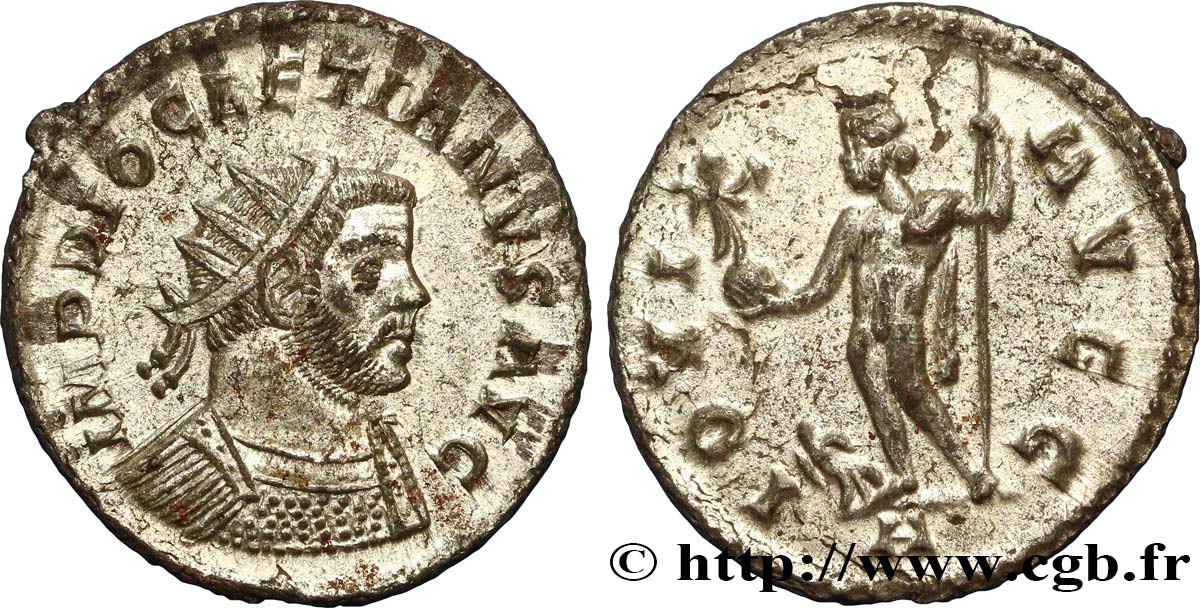
 Report a mistake
Report a mistake Print the page
Print the page Share my selection
Share my selection Ask a question
Ask a question Consign / sell
Consign / sell
 Full data
Full data

